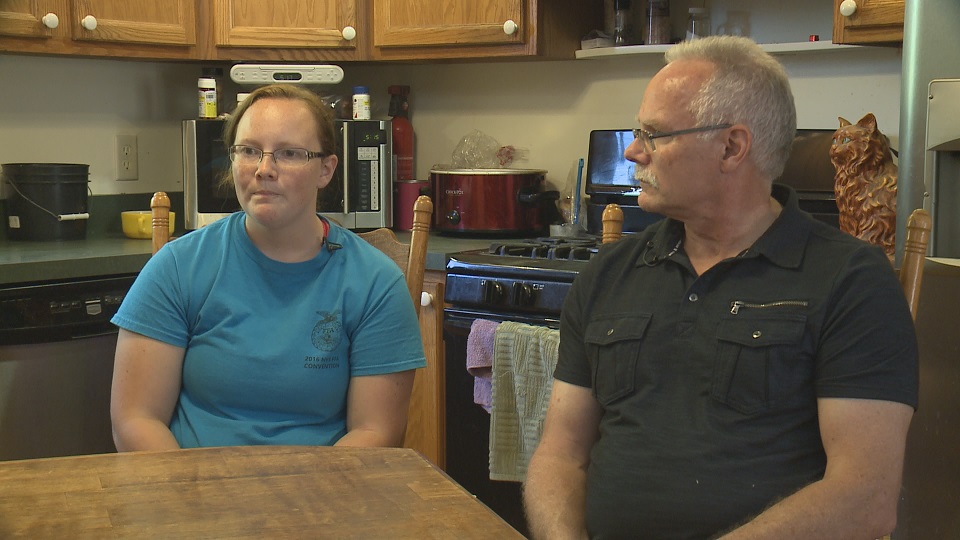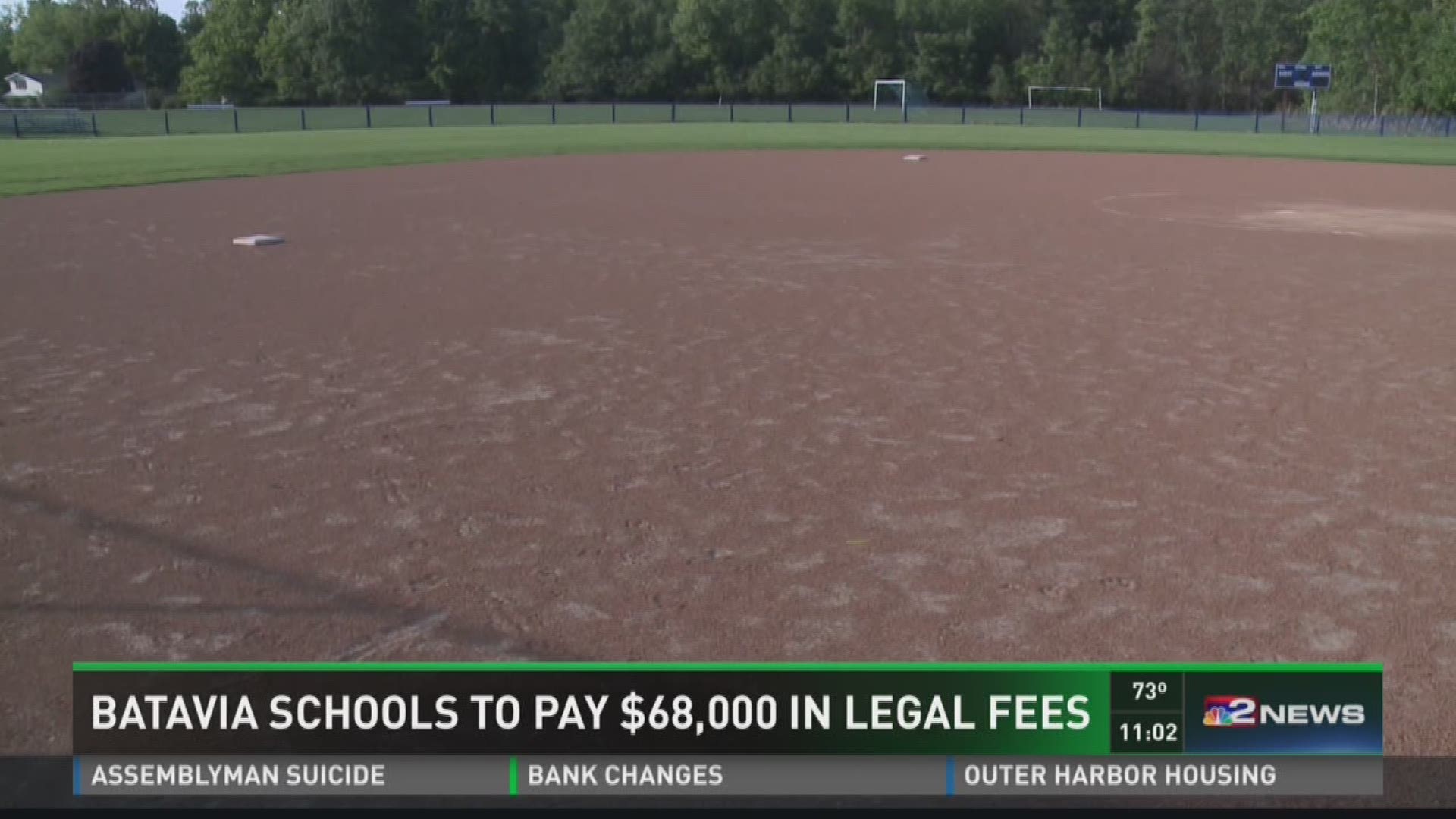BATAVIA, N.Y. - Rebecca Myers has no regrets.
In 2013, Rebecca, her sister and another Batavia High School softball player filed a federal class action lawsuit against the Batavia City School District, alleging sexual discrimination under Title IX because of the disparity in facilities for male and female athletes. The boys' baseball team played home games at Dwyer Stadium, a professional minor league venue. The girls' softball team, meanwhile, played on a "hazardous" field with no outfield fences, dugouts or scoreboard, according to the lawsuit.
In 2014, the district settled the lawsuit. A year later, Anderson Field opened for the softball team, providing them with the state-of-the-art facilities they had argued for all along, with the help of a legal team from the Rochester-area Empire Justice Center.

This spring, Myers will take the circle for her senior season as a pitcher for the Blue Devils. She considers her new field a symbol of equality.
"It's been hard, but I'd rather say what I believe in and get a lot of backlash," Myers said, "than to not say and it and regret it for the rest of my life."
This week, the lawsuit closed with a final chapter. United States District Judge William M. Skretny ruled that the Batavia City School District now owes an additional $68,545 in fees to reimburse the Empire Justice Center for their legal work on behalf of the players and their families. According to Skretny's written ruling, "this Court finds that Plaintiffs achieved nearly all they sought through their Complaint," meaning the attorneys are entitled to the reimbursement they requested as a part of the original suit.
Superintendent Christopher Dailey immediately criticized the ruling, issuing a statement that referred to the lawsuit as "unnecessary" and "only served to waste taxpayers' money." The district contends it already included funding for the new softball field as a part of a 2013 budget that voters passed.
"The improvements to the girls' softball field were already approved by the Board before the lawsuit was filed, and they were commenced immediately upon taxpayer approval of the funding. The changes would have been made regardless whether the lawsuit was filed," Dailey said.
The district's lawyers argued the "Plaintiffs achieved virtually nothing in the way of success... Defendant contends that the upgrading of the softball field 'was not a result of the Plaintiffs' action' and had long been underway."
However, in his ruling, Judge Skretny said that argument was "directly at odds" with the settlement agreement for softball field improvements. "If Plaintiffs' suit was not the reason for the changes, and such changes had long been underway," he wrote, "Defendant should have settled the suit earlier, thereby avoiding costs for both sides."
The defense team also argued the court should consider the impact on taxpayers when deciding whether to hold them responsible for legal fees, but Judge Skretny denied that argument, citing a lack of precedent.
James Myers, Rebecca's father, said he agrees the district did have a solid plan for field upgrades. However, he said that the plan still did not comply with Title IX standards because it was contingent on a public budget vote, unlike funding for boys' sports. A plan for facility upgrades had been voted down by voters in 2011.
Myers strongly objects to the district's claim that the lawsuit wasted taxpayer dollars.
"Title IX says if you're going to draw from a pot of resources for the boys, you have to use those same resources in equal quantity for the girls," Myers said. "You can't make it contingent on something else."
Kristin Small, an attorney with Empire Justice Center, said the players and their families wouldn't have brought the lawsuit if they didn't believe it was absolutely necessary.
"They only brought a lawsuit after it became apparent that the inequalities wouldn't be remedied without legal action, and even then it was a difficult decision," Small said in a statement to 2 On Your Side. "The three students who represented their team have faced backlash because of their decision to stand up for themselves and their teammates, and two of them knew they wouldn't even personally benefit from the case because they would graduate before any renovations were done."
Although Rebecca Myers only has one season left of high school softball, she believes the lawsuit will resonate across the region. The Myers family has been contacted by multiple Rochester-area schools, who decided to take a hard look at their girls' athletic facilities after taking notice of the Batavia case.
"It's been amazing, because I haven't necessarily had support from around Batavia," Myers said. "I think that's just amazing that other schools are seeing what we are doing and they're saying 'hey, we're having the same problem here, and it's not right and something needs to be done. And I think that's just outstanding."

